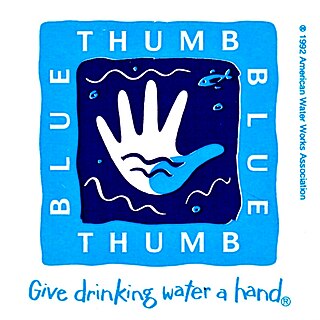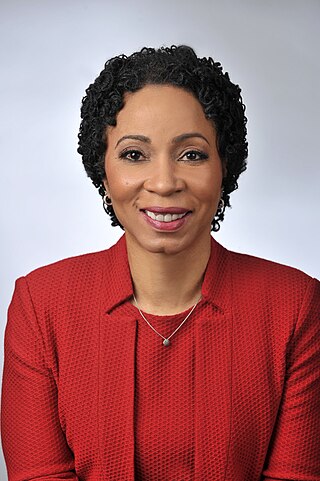
The American Association for the Advancement of Science (AAAS) is an American international non-profit organization with the stated mission of promoting cooperation among scientists, defending scientific freedom, encouraging scientific responsibility, and supporting scientific education and science outreach for the betterment of all humanity. AAAS was the first permanent organization established to promote science and engineering nationally and to represent the interests of American researchers from across all scientific fields. It is the world's largest general scientific society, with over 120,000 members, and is the publisher of the well-known scientific journal Science.
The American Statistical Association (ASA) is the main professional organization for statisticians and related professionals in the United States. It was founded in Boston, Massachusetts on November 27, 1839, and is the second-oldest continuously operating professional society in the U.S. behind the Massachusetts Medical Society, founded in 1781). ASA services statisticians, quantitative scientists, and users of statistics across many academic areas and applications. The association publishes a variety of journals and sponsors several international conferences every year.

American Water Works Association (AWWA) is an international non-profit, scientific and educational association founded to improve water quality and supply. Established in 1881, it is a lobbying organization representing a membership of around 50,000 members worldwide.
Health advocacy or health activism encompasses direct service to the individual or family as well as activities that promote health and access to health care in communities and the larger public. Advocates support and promote the rights of the patient in the health care arena, help build capacity to improve community health and enhance health policy initiatives focused on available, safe and quality care. Health advocates are best suited to address the challenge of patient-centered care in our complex healthcare system. The Institute of Medicine (IOM) defines patient-centered care as: Health care that establishes a partnership among practitioners, patients, and their families to ensure that decisions respect patients’ wants, needs, and preferences and that patients have the education and support they need to make decisions and participate in their own care. Patient-centered care is also one of the overreaching goals of health advocacy, in addition to safer medical systems, and greater patient involvement in healthcare delivery and design.
Patient advocacy is a process in health care concerned with advocacy for patients, survivors, and caregivers. The patient advocate may be an individual or an organization, concerned with healthcare standards or with one specific group of disorders. The terms patient advocate and patient advocacy can refer both to individual advocates providing services that organizations also provide, and to organizations whose functions extend to individual patients. Some patient advocates are independent and some work for the organizations that are directly responsible for the patient's care.

Abel Wolman was an American engineer, educator and pioneer of modern sanitary engineering. His professional career left impacts in academia, sanitary engineering research, environmental and public health services, engineering professional societies, and journal publications. Wolman is best known for his research with Linn Enslow in the chlorination of Baltimore's municipal water supply, which has contributed to the distribution of safe municipal water supplies globally.

Helene D. Gayle is an American physician, and academic and non-profit administrator. She has served as the president of Spelman College since 2023. She formerly served as CEO of the Chicago Community Trust, one of the nation's leading community foundations. Earlier in her career she was the director of international humanitarian organization CARE, and worked in the field of public health programs at the CDC.
Michael Abbott Newton is a Canadian statistician. He is a Professor in the Department of Statistics and the Department of Biostatistics and Medical Informatics at the University of Wisconsin–Madison, and he received the COPSS Presidents' Award in 2004. He has written many research papers about the statistical analysis of cancer biology, including linkage analysis and signal identification.
Xihong Lin is a Chinese–American statistician known for her contributions to mixed models, nonparametric and semiparametric regression, and statistical genetics and genomics. As of 2015, she is the Henry Pickering Walcott Professor and Chair of the Department of Biostatistics at Harvard T.H. Chan School of Public Health and Coordinating Director of the Program in Quantitative Genomics.

Nilanjan Chatterjee is a Bloomberg Distinguished Professor of Biostatistics and Genetic Epidemiology at Johns Hopkins University, with appointments in the Department of Biostatistics in the Bloomberg School of Public Health and in the Department of Oncology in the Sidney Kimmel Comprehensive Cancer Center in the Johns Hopkins School of Medicine. He was formerly the chief of the Biostatistics Branch of the National Cancer Institute's Division of Cancer Epidemiology and Genetics.

Rafael Irizarry is a professor of biostatistics at the Harvard T.H. Chan School of Public Health and professor of biostatistics and computational biology at the Dana–Farber Cancer Institute. Irizarry is known as one of the founders of the Bioconductor project.
Francesca Dominici is a Harvard Professor who develops methodology in causal inference and data science and led research projects that combine big data with health policy and climate change. She is a professor of biostatistics, co-director of the Harvard Data Science Initiative, and a former senior associate dean for research in the Harvard T.H. Chan School of Public Health.
Amy Helen Herring is an American biostatistician interested in longitudinal data and reproductive health. Formerly the Carol Remmer Angle Distinguished Professor of Children's Environmental Health at the University of North Carolina at Chapel Hill, she is now Sara & Charles Ayres Distinguished Professor in the Department of Statistical Science, Global Health Institute, and Department of Biostatistics & Bioinformatics of Duke University.
Liming Peng is a Chinese biostatistician who works as a professor of biostatistics and bioinformatics at the Rollins School of Public Health, Emory University, where she is also affiliated with the Winship Cancer Institute. The topics of her statistical research include survival analysis, quantile regression, and nonparametric statistics; she applies these methods to the study of chronic diseases including diabetes and cystic fibrosis.
Mortimer Spiegelman was an American statistician, actuary, and demographer whose research focused on the application of statistics to the field of public health. He was Staff Statistician at the American Public Health Association (APHA) from 1967 until his death in 1969. He was a fellow of the APHA, the Society of Actuaries, and the American Statistical Association. The APHA's Statistics Section has awarded the Mortimer Spiegelman Award in his honor since 1970. The annual award is given to a distinguished public health statistician under the age of 40.
Roger D. Peng is an author and professor of Statistics and Data Science at the University of Texas at Austin. Peng originally received a Bachelor of Science in Applied Mathematics from Yale University in 1999, before going on to study at the University of California, Los Angeles, where he completed a Master of Science in Statistics in 2001 and a PhD in Statistics in 2003. The focus of his research has been on environmental health, specifically focusing on air pollution and climate change in his research. Peng is also a software engineer who has authored numerous R packages focused on applying statistical methods necessary for a variety of topics. He has also created numerous resources including books, online courses, podcasts, blogs, and other articles to aid those learning data analysis.

Sherri Rose is an American biostatistician. She is an associate professor of health care policy at Stanford University, and once worked at Harvard University. A fellow of the American Statistical Association, she has served as co-editor of Biostatistics since 2019 and Chair of the American Statistical Association’s Biometrics Section. Her research focuses on statistical machine learning for health care policy.
Helen C. Chase was an American public health statistician.
Regina L. Loewenstein was an American public health statistician who worked as a lecturer in the Columbia University Mailman School of Public Health.
Joel C. Kleinman was an American health statistician and epidemiologist specializing on the causes of infant mortality. He was director of analysis at the National Center for Health Statistics.








